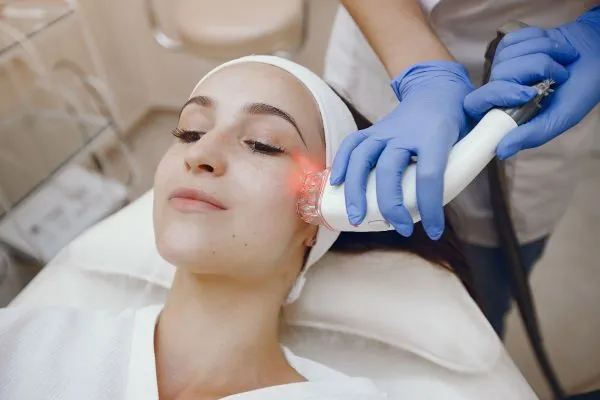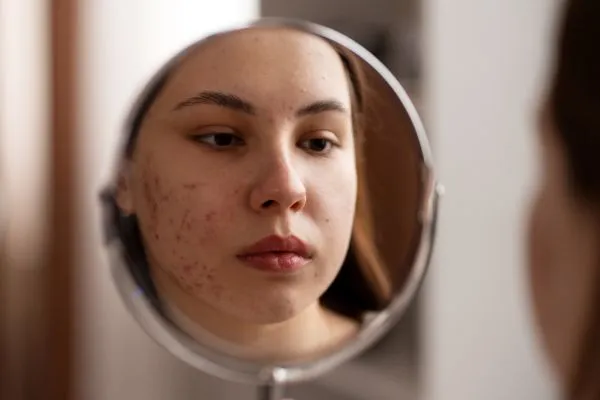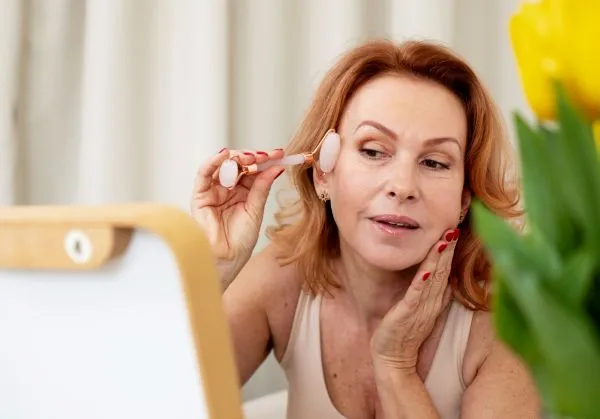When it comes to clear, healthy skin, understanding the root causes of acne is essential. One of the most common—and often misunderstood—forms of acne is the comedone. Whether you're dealing with stubborn blackheads or recurring whiteheads, comedones are a signal that your skin needs a little extra care.
In this article, Our Chief Dermatologist Dr. Keerthana Kalva will talk about what comedones are, what causes them, and the best ways to treat and prevent them—both at home and with professional care from a dermatologist.
What Are Comedones?
Comedones are small, flesh-colored, white, or dark bumps that appear when pores become clogged with oil (sebum), dead skin cells, and debris. They are one of the earliest signs of acne and are typically non-inflammatory—meaning they’re not red or painful like pimples or cysts.
They often appear on the face (especially the nose, forehead, and chin), but can also develop on the back, chest, and shoulders.
Types of Comedones
1. Open Comedones (Blackheads)
These appear as small dark spots on the skin’s surface. The dark color isn’t dirt, but rather the result of oxidation when the clogged pore is exposed to air.
2. Closed Comedones (Whiteheads)
These are small, flesh-colored or white bumps that occur when a clogged pore remains sealed. They may feel slightly raised under the skin and can develop into inflammatory acne if untreated.
3. Microcomedones
These are the tiniest form of comedones and are often invisible to the naked eye. However, they can evolve into blackheads or whiteheads if not addressed early.
What Causes Comedones?
- Excess sebum (oil) production
- Dead skin cell buildup
- Comedogenic skincare or makeup products
- Hormonal imbalances
- Poor or inconsistent skincare habits
- Diet (especially dairy and high sugar intake)
- Pollution and environmental stressors
How to Prevent Comedones
- Use non-comedogenic skincare and makeup
- Cleanse your face twice daily
- Gently exfoliate 1–2 times per week
- Don’t touch your face unnecessarily
- Change pillowcases regularly
- Eat a balanced diet and drink water consistently
Effective Treatment Options
At-Home Treatments
- Salicylic Acid: Deep cleans and exfoliates inside pores
- Topical Retinoids: Boost skin cell turnover
- Benzoyl Peroxide: Reduces bacteria and inflammation
- Clay Masks: Absorb oil and unclog pores
Professional Treatments at Our Clinic
- Comedone Extraction: Manual, sterile removal
- Chemical Peels: Medical-grade exfoliation for smooth skin
- Laser & Light Therapy: Reduce oil and kill bacteria
- Medical-Grade Facials: Deep cleansing and hydration
When Should You See a Dermatologist?
You should seek professional help if:
- Over-the-counter treatments aren't working
- Your acne is spreading or worsening
- You’re experiencing pain, redness, or inflammation
- Scarring or skin discoloration begins to occur
Final Thoughts
Comedones may be common, but that doesn't mean you have to live with them. With the right skincare and professional care, clear, radiant skin is achievable.
If you're struggling with comedones or other acne concerns, our expert dermatology and cosmetology team is here to help. Book a consultation today and take the first step toward healthier skin.
Your skin deserves expert care—let us help you put your best face forward.
For enquiries you can get in touch with us at info@drkeerthanakalva.com







